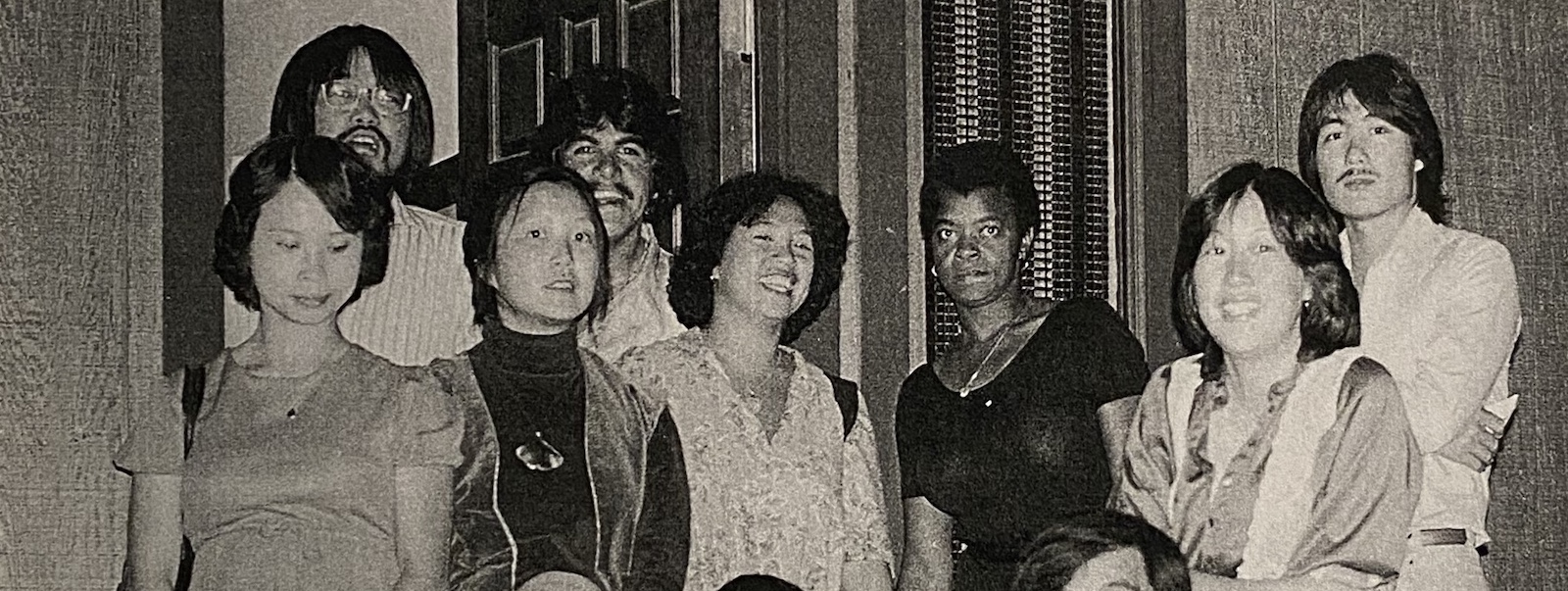Prologue
I'm Mae, the current Department Chair of Asian American and Asian Studies at De Anza.
I'm Karen, a De Anza student and research intern.
Epistemology: A Conversation
I'm so excited to finally be able to introduce our history timeline!
Yeah! We've worked so hard on this and it's great to finally publish it. But...I'm suddenly having second thoughts. What if we missed something? Or what if we misinterpreted something along the way?
Those are good questions. They make me think about how Asian American Studies as a field pushes us to question what counts as "legitimate" knowledge. You're raising questions about epistemology.
Epi-stem...ology...What's that?
Epistemology is a fancy word academics like to use to describe the theory of knowledge. In other words, what do you know? And how do you know what you know?
How do I know what you know that…Wait, what?
![]()
Think of it like this: when you learn something—whether it's in school, from a conversation, or online—that knowledge doesn't just appear out of nowhere. Someone has to craft it, write it, and present it. Someone has to choose what to leave in, and what to leave out.
So what you get is curated—by someone or a group of someones. And it reflects how they got their information, how they decided what's important, and how they frame things.
We like to think of knowledge as universal truths, but from a bigger picture, it's shaped by the social, political, and economic contexts we live in. History, for example, isn't really objective; it's constructed and influenced by lots of factors. It's from a certain point of view.
Hmm...okay, so if I'm understanding correctly, you're saying that someone has to decide what does or doesn't count as "legit" knowledge, and that someone's perspective or context can influence their decision-making. That's a pretty interesting way to think about it.
But...now I have another question.
What's that?
If we start questioning what knowledge and history really are...then shouldn't our project also be subject to the same questions? Like, instead of claiming that this is the authoritative account of Asian American Studies at De Anza, we should allow more room for this kind of…epistemological thinking?
I think you’re right on, Karen. What we’re trying to do here is contribute our story: one that may continue to grow and evolve.
So by presenting this timeline we're not necessarily saying that this is the complete and definitive version of what happened. I mean, of course we did our best to do our due diligence and substantiate our claims with research…but we’re also acknowledging that there’s room for more research and interpretation.
I'd like to think so. The way I look at it is: we're encouraging people to think critically about the information they encounter, even as we tell our own story. We do want people to contend with the idea that history is multi-faceted and ever-evolving. And that it's about power: who has the power to decide what is or is not legitimate knowledge.
I think by sharing our history, we're contributing to a broader narrative about Ethnic Studies. We're continuing the conversation by adding voices and perspectives that might have been overlooked in the past.
Wow...now that sounds pretty legit!
So without further ado, we’d like to present…Our Narrative: A History of Asian American Studies at De Anza.

